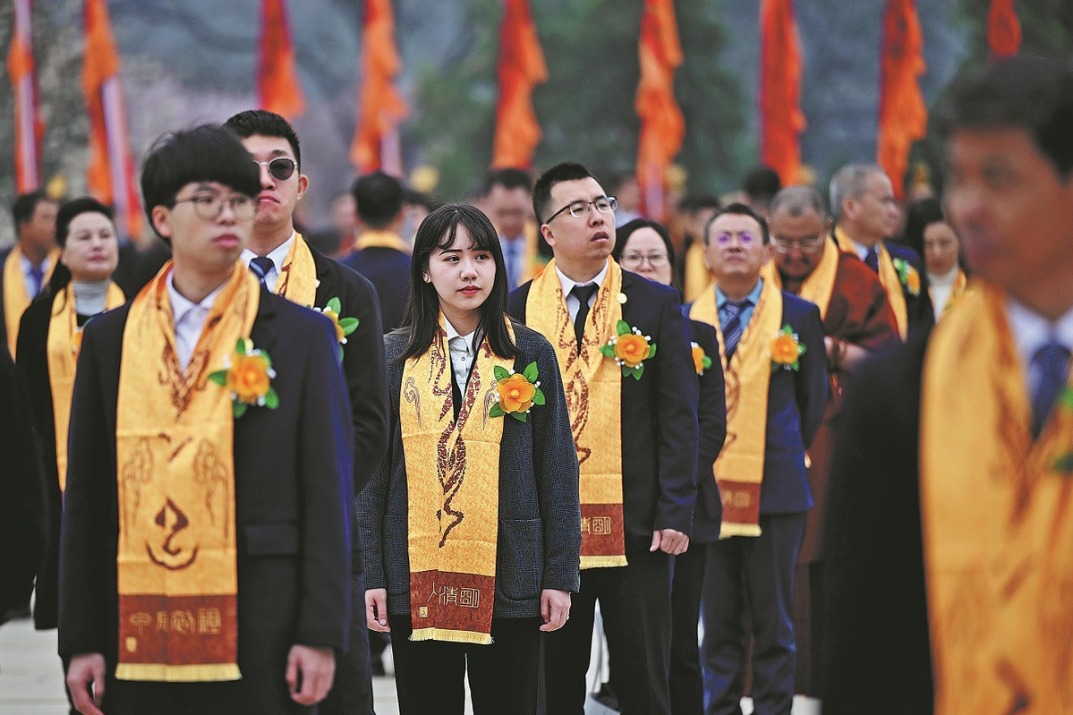US organ transplant group faulted
By MAY ZHOU in Houston | China Daily Global | Updated: 2022-08-04 11:14
United Network for Organ Sharing needs to be improved or restructured, review finds
A 24-year-old Houston man has become so desperate for a kidney donation that he takes his search to the streets.
Victor Robles has been on dialysis for a year and half. Everyday he is hooked to a dialysis machine for 12 hours to stay alive. He is on a transplant list, but he is afraid he can't wait any longer for a match because his test result shows that dialysis isn't working well enough for him.
So, in his spare time after work, Robles finds a corner in Houston and stands with a sign: "I don't want money. I just need one kidney. Who can help?"
"For another chance for me to live," Robles told the local CBS affiliate over the weekend. "I want to get married, have kids, work for what I want."
Robles' proactive approach coincides with a review by the White House's US Digital Service that found that the program matching donors and patients for organ transplant and run by the United Network for Organ Sharing (UNOS) needs to be improved or restructured, according to the review, which The Washington Post reported Sunday.
The review was completed 18 months ago and found the system relies on outdated technology, experiences periodic system failures, has programming mistakes and overly relies on manual input of data that can lead to mistakes or narrow the timing window for successful organ matches, the Post said.
During the investigation, it was found that the critical computers connecting the transplant network have crashed a total of 17 days since 1999. One outage that occurred in February 2021 lasted three hours. It is a serious problem, because organs can lose vitality in four hours.
It was found that a programming error pushed some lung patients lower on the priority list than they should have been before the mistake was caught by a different federal contractor analyzing patient data.
The investigation also found that the technology that runs the transplant system is not only far behind current standards but also unlikely to catch up. In addition, the report said that "there are no requirements, or mechanisms to create requirements, in the current contract" to force UNOS to upgrade its technology.
Organ donation in the US is in high demand. According to the UNOS website, 105,885 patients are waiting for a donation, with a kidney most in demand. Roughly 22 people a day die waiting for organs, it said.
Last year, organ transplants in the US reached a record high at 41,354. There were 24,669 kidney transplants, 9,236 liver transplants and 3,817 heart transplants, according to UNOS.
A data report by the Scientific Registry of Transplant Recipients shows that within five years, only about a quarter of patients on a waiting list received a kidney transplant from a deceased person. However, about 21 percent of kidney donations were wasted in 2020, the report said.
In comparison, European countries report much lower rates of wasted kidneys, the Post reported. France had a kidney-discard rate of 9.1 percent from 2004-2014. The UK's rate ranges from 10 to 12 percent. Eurotransplant, a network of eight countries including Germany, reported waste of about 8 percent.
Transplant doctors have long complained about outdated aspects of the technology for sharing data and getting organs to the right place as quickly as possible.
"When nearly 100 percent of hospitals use electronic records, the notion that we rely on human beings to enter data into databases is crazy. It should be 85 to 95 percent automatic," Ryutaro Hirose, a former chair of the UNOS liver transplant policy committee and surgery vice chair at University of California at San Francisco, told the Post.
Hirose said he had been forced to turn to travel sites such as Expedia to make plans for transporting organs.
Carrie Frenette, former medical director of liver transplants at Scripps Green Hospital in San Diego, said a patient died because of a lack of coordination with UNOS.
"We had a very sick woman in the ICU on life-support systems. We finally got an organ offered, but there were difficulties in getting the surgeons to her and getting the liver back, and a week later she died," Frenette said.
The review recommended that the government should break up the current monopoly by UNOS to separate the contract for technology and policy responsibilities such as deciding how to weigh considerations for transplant eligibility.
UNOS has been the only nonprofit organization contracted by the federal government to run the organ-transplant program in the US since 1984.
It regards its computer code running the program as a trade secret. UNOS has said the government would have to buy it outright for $55 million if it ever gave the contract to someone else, the review. said,
Another review requested by the Congress and conducted by the National Academies of Sciences, Engineering and Medicine came out with the same conclusion in February. It recommended splitting the information technology infrastructure into a separate contract or requiring modernization when UNOS' contract comes up for rebidding in 2023.























